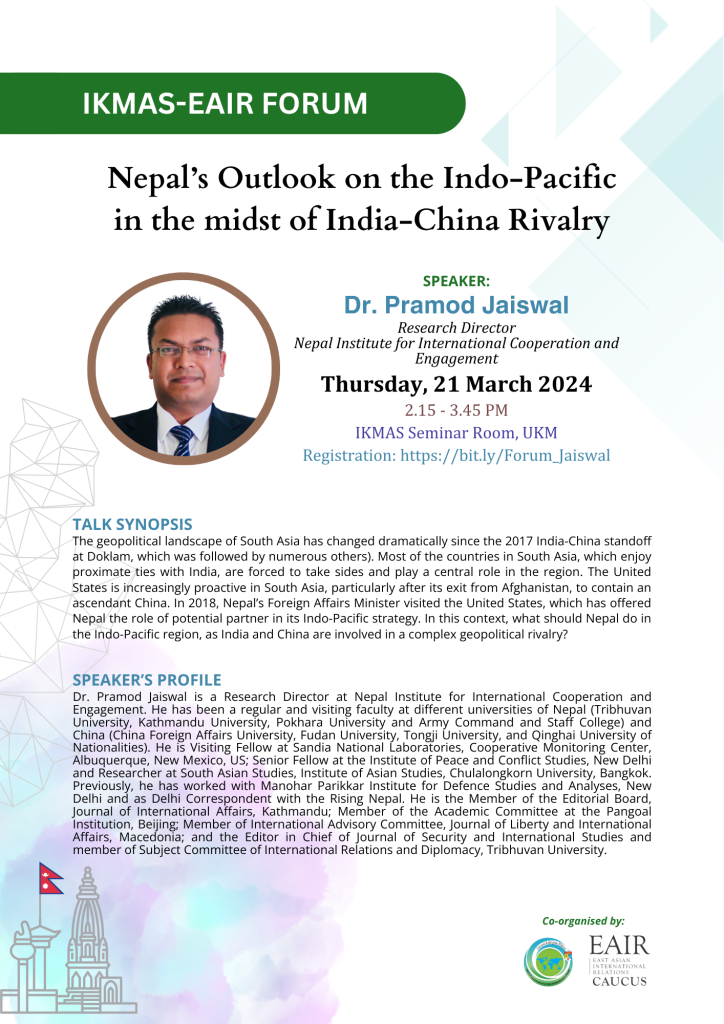
About the Talk
The geopolitical landscape of South Asia has changed dramatically since the 2017 India-China standoff at Doklam, which was followed by numerous others). Most of the countries in South Asia, which enjoy proximate ties with India, are forced to take sides and play a central role in the region. The United States is increasingly proactive in South Asia, particularly after its exit from Afghanistan, to contain an ascendant China. In 2018, Nepal’s Foreign Affairs Minister visited the United States, which has offered Nepal the role of potential partner in its Indo-Pacific strategy. In this context, what should Nepal do in the Indo-Pacific region, as India and China are involved in a complex geopolitical rivalry?
About the Speaker
Dr. Pramod Jaiswal is a Research Director at Nepal Institute for International Cooperation and Engagement. He has been a regular and visiting faculty at different universities of Nepal (Tribhuvan University, Kathmandu University, Pokhara University and Army Command and Staff College) and China (China Foreign Affairs University, Fudan University, Tongji University, and Qinghai University of Nationalities). He is Visiting Fellow at Sandia National Laboratories, Cooperative Monitoring Center, Albuquerque, New Mexico, US; Senior Fellow at the Institute of Peace and Conflict Studies, New Delhi and Researcher at South Asian Studies, Institute of Asian Studies, Chulalongkorn University, Bangkok. Previously, he has worked with Manohar Parikkar Institute for Defence Studies and Analyses, New Delhi and as Delhi Correspondent with the Rising Nepal. He is the Member of the Editorial Board, Journal of International Affairs, Kathmandu; Member of the Academic Committee at the Pangoal Institution, Beijing; Member of International Advisory Committee, Journal of Liberty and International Affairs, Macedonia; and the Editor in Chief of Journal of Security and International Studies and member of Subject Committee of International Relations and Diplomacy, Tribhuvan University.
